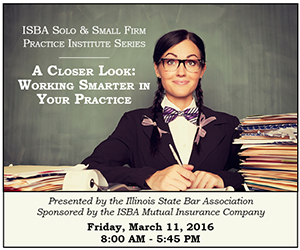Federal 7th Circuit / Civil
Video Privacy Protection Act
| N.D. Ill., Eastern Div.
Gardner v. Me-TV National Limited Partnership, No. 24-1290
(March 28, 2025)
(EASTERBROOK)
Reversed and remanded.
In a case involving the Video Privacy Protection Act, the Seventh Circuit considered what it means for a person to be a “subscriber,” a term that is not defined by the Act despite the Act’s prohibition against a video tape service provider releasing information without consumer consent. The term consumer is defined under the Act to include “subscribers.” The Seventh Circuit concluded that any type of purchase or subscription from a video tape service provider satisfies the definition of “consumer,” even if the thing purchased is not a video tape but rather some other item such as an item of clothing or if the subscription is not for a video but for some other item like a newsletter. (JACKSON-AKIWUMI and KOLAR, concurring)
|
Federal 7th Circuit / Civil
Standing
| N.D. Ill., Eastern Div.
Thomas v. LVNV Funding, LLC, No. 24-1993
(March 21, 2025)
(EASTERBROOK)
Reversed and remanded.
Plaintiff filed a lawsuit under the Fair Debt Collection Practices Act, alleging that she was entitled to statutory damages where there was a delay between when she disputed the accuracy of a debt and when defendant reported the dispute to credit-reporting agencies. A jury found in favor of the plaintiff and awarded her damages. On appeal, defendant did not contest the district court’s conclusion that defendant was required to notify the credit-reporting agency earlier, but rather argued that the delay did not injure the plaintiff and that without an injury she lacked standing to file a lawsuit. The Seventh Circuit agreed and reversed, explaining that the availability of statutory damages does not suffice for standing and there must be some injury whether it is financial or reputational. (SYKES and PRYOR, concurring)
|
Federal 7th Circuit / Civil
Extra-Statutory Damages
| N.D. Ill., Eastern Div.
Brooks v. Richardson, No. 24-1651
(March 14, 2025)
(EASTERBROOK)
Affirmed in part, vacated in part, remanded.
Plaintiff filed a lawsuit seeking damages after medical personnel at a federal prison camp failed to properly and timely diagnose plaintiff’s appendicitis. Plaintiff brought the lawsuit under the doctrine of Bivens, which created an extra-statutory claim for damages against federal agents who violate the Fourth Amendment in the course of an arrest. The district court dismissed the lawsuit, finding that it presented a context to which Bivens did not extend, and plaintiff appealed. The Seventh Circuit affirmed in part and vacated in part, finding that plaintiff’s claims against three defendants who actually treated plaintiff were legally viable but that the claims against two supervisors who did not provide any medical treatment were not viable under Bivens and its progeny. (PRYOR and KOLAR, concurring)
|
Federal 7th Circuit / Civil
Federal Tort Law
| N.D. Ill., Eastern Div.
Evans v. U.S., No. 23-1151
(March 13, 2025)
(LEE)
Affirmed.
The Seventh Circuit was asked to determine whether the savings provision in the Federal Employees Liability Reform and Tort Compensation Act (Westfall Act) applies in a medical malpractice case when the government deems the sued medical professional to be a federal employee, certifies that he was acting within the scope of his employment, and replaced him as a party under the Public Health Service Act. The Seventh Circuit explained that because the savings provision limits its application to actions where the United States is substituted as a party under the Federal Tort Claims Act the savings provisions of the Westfall Act did not apply. (ST. EVE, concurring)
|
Federal 7th Circuit / Civil
Preliminary Injunctions
| S.D. Ind., Indianapolis Div.
LSP Transmission Holdsing II, LLC v. Huston, No. 24-3248, 24-3249 & 25-1024
(March 13, 2025)
(HAMILTON)
Vacated and remanded.
Plaintiff and several of its affiliates are seeking to build and operate interstate electricity transmission lines in the state of Indiana where state law gives incumbent electric companies rights of first refusal to build and operate new transmission facilities that connect to existing facilities in the state. Plaintiffs argued that the state statute violated the dormant commerce clause implied in the U.S. Constitution and the district court issued a preliminary injunction barring the Indiana Utility Regulatory Commission from enforcing the state statute. The Commission and several intervening defendants appealed the injunction. The Seventh Circuit vacated the injunction, explaining that plaintiffs lacked standing because they did not show that the injunction was reasonably likely to redress or prevent their feared injuries. (JACKSON-AKIWUMI, concurring and SCUDDER, dissenting)
|
|






